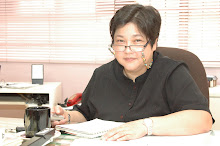The University of the Philippines Center for Women's Studies endorses in full the statement of the faculty of the UP College of Law titled “Restoring Integrity” on the allegations of plagiarism and misrepresentation in the Supreme Court in connection to the case, Vinuya v. Executive Secretary.
As a research center concerned with promoting gender equity in the UP System and the larger society, the UPCWS lauds the statement of the College of Law upholding the quest of Filipino “comfort women” seeking redress for a decades-long injustice. A Supreme Court decision in their favor would have added to recent gains in human rights standards that recognize rape and other forms of sexual violence as war crimes.
We are disappointed with the Court in its decisions related to this because we have worked with the Supreme Court in its efforts to integrate gender-sensitive perspectives in the Philippine Judiciary; in fact, through this work, the UPCWS received the Justice Davide Justice Reform Award. We believe that if the Court had taken into consideration the women’s experience of sexual slavery within the context of prevailing international standards on human rights and state responsibilities, it would have recognized the merits of the case for our government to pursue the claims of the women against the Japanese government.
We find it disturbing that the Supreme Court has not only rejected the points of the supplemental motion filed by the petitioners, alleging that the decision promulgated had plagiarized sections, but it even upheld, in the process, this decision that was made on less indisputable grounds, at the cost of another injustice to the women. To make matters worse, the Court had to display “judicial muscle” and sought to punish the faculty and dean of the UP College of Law for their declaration of the paramount importance of integrity in the decisions of the Court.
Furthermore as a university research center, we are with the College of Law on its assertion that plagiarism is unacceptable and unethical. Issues of plagiarism and misrepresentation are serious violations of academic ethical standards. Ethical standards are sacred to the academe because they are a foundation on which the claims and strength of our work stands.
Yet caveats against plagiarism and misrepresentation do not merely apply to the academe. They apply as well to professional and governmental institutions, especially the Supreme Court, which undertakes the research, analysis, interpretation and application of social policy that governs our lives.
In choosing to make its statement on the issue, the faculty of the College of Law fulfilled their ethical duties. As professors of law, they are duty-bound to remind practitioners of the ethical standards of the discipline. As practitioners of law, they are ethically bound to speak against what they perceive as threats to the honor and integrity of the practice of law. Various ethical codes for professional disciplines both locally and internationally uphold this principle of speaking out against what one perceives as unethical behavior on the part of professional colleagues.
Government institutions in democracies, by character, must be transparent and accountable to the people. Criticism and dissent from the people should not be taken as an affront rather these are indications of our engagements in governance and the vibrancy of our democracy. Criticism may hurt. But those who wield government power must understand that openness to criticism is central to the wise use of power. We hope that the Supreme Court can view the statement of the UP College of Law in this light.
25 November 2010
Sylvia Estrada Claudio
Director
Odine de Guzman
Deputy Director for Research and Publication
Ma. Theresa Ujano-Batangan
Deputy Director for Training and Outreach
Is an Anti-Choice Clinic Using ‘Unlawful Imprisonment’ as Company Policy?
-
Those familiar with the tactics employed at anti-choice pregnancy clinics
say they're not surprised by a recent Reddit post from a clinic worker.
The po...
7 years ago

